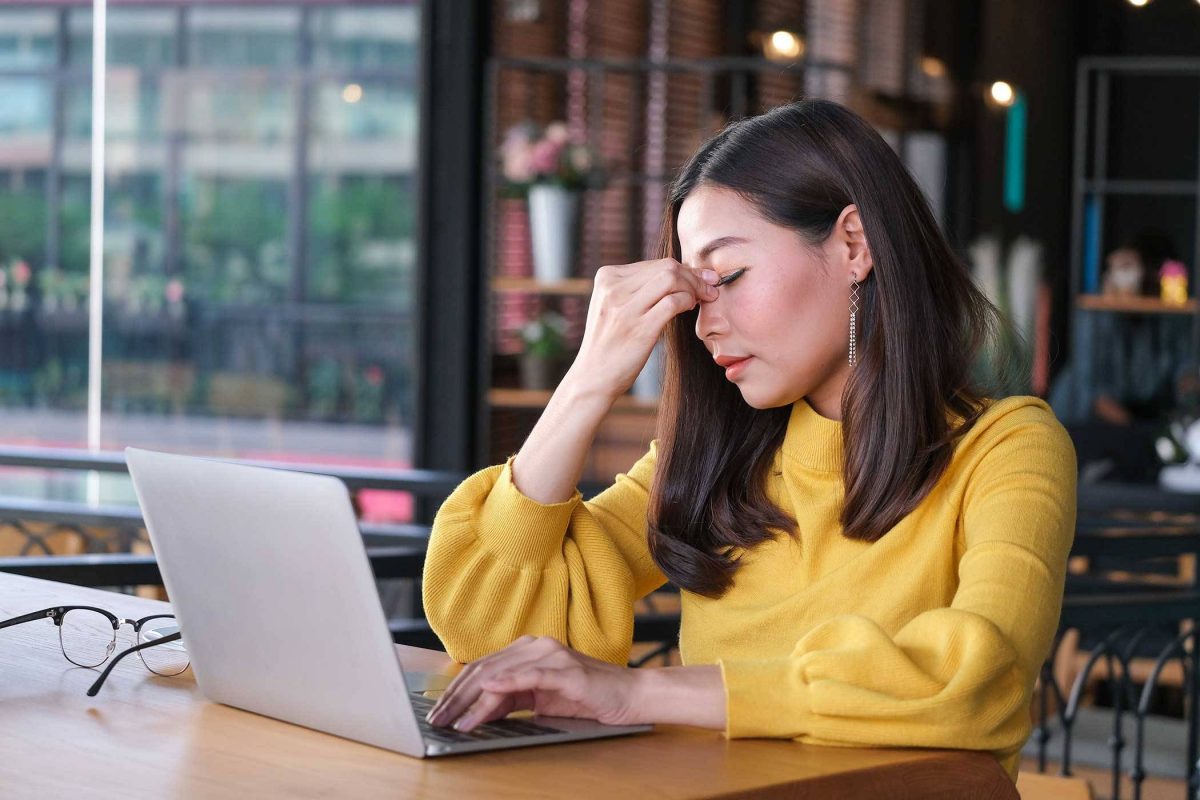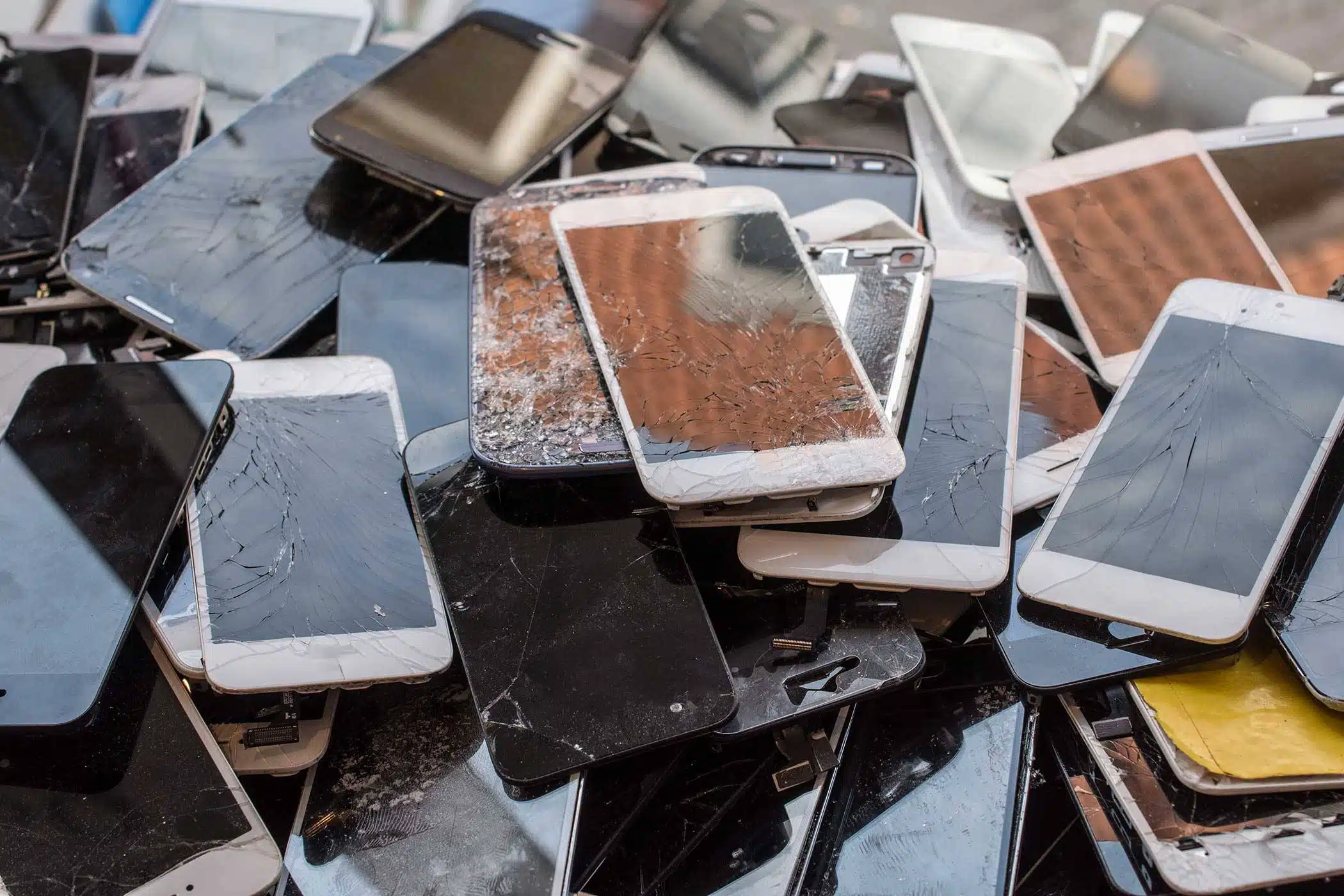Blue Light: What Is It And Why Does It Matter?
General
 Posted by: Lyle Schrock 4 years ago
Posted by: Lyle Schrock 4 years ago
The effects of blue light exposure on our eyes and overall health have become something that we hear about all the time. Whether it’s in ads for blue light blocking glasses or cautionary tales of how screens can cause insomnia, blue light has become a buzzword.

Since creating smiles is always our goal and blue light exposure in Warsaw, Indiana is a concern among our clients, we thought we’d take this opportunity to share resources you need to better understand blue light.
What Is Blue Light?
Light from the sun contains many colors that are combined to create what we see as “white light” and refer to as sunlight. Rays that are on the blue end of the visible light spectrum are short and contain higher amounts of energy than their longer, red counterparts.
Similar to ultraviolet rays, visible blue light can be both beneficial and dangerous depending on how it is used.
How Does Blue Light Affect Us?
Blue light is everywhere and it isn’t all bad! Sunlight is the main source of blue light, but man-made sources surround us too. From LED lighting to the screens on our devices, blue light is something we encounter every day. However, long-term exposure can be harmful.
Blue light can be beneficial to us during daytime hours because it can improve our focus, reaction times, and even our moods. However, some experts say that being exposed to blue light at night can interrupt our sleep patterns, deteriorate our vision and eye health, and cause headaches due to increased eye strain.
Prolonged exposure to blue light can cause retinal damage and also contribute to age-related macular degeneration, which can lead to loss of vision. According to the Review Of Optometry, between 40-60% of people experience visual or ocular symptoms while viewing electronic displays for prolonged periods of time.
Symptoms of eye strain can include:
- Eye fatigue
- Ocular irritation
- Burning sensation in the eyes
- Redness
- Dry eyes
- Blurred and double vision
While most people see a decrease in symptoms once they stop exposing their eyes to blue light, some do experience continued discomfort even after they stop using their electronic devices.
How To Protect Your Eyes
Our eyes are extremely effective at blocking UV rays from reaching our retinas. Less than 1% of UV radiation from the sun reaches that sensitive part of our eye, even without wearing sunglasses.
But blue light is different. Nearly all visible blue light will pass through the protective shields of our eyes’ cornea and lens, meaning it can reach our retinas.
Research is constantly being done to determine how much man-made blue light is too much for the retinas to safely handle.
However, most eye health experts agree that protecting our eyes from blue light as much as possible is the best path forward.
This is even more important for children’s eyes. Children’s eyes are more sensitive to blue light because their pupils are larger and their arms are shorter, so they tend to hold blue light-generating devices closer to their eyes.
6 Ways To Reduce Blue Light’s Effect On Your Eyes
- Use the 20-20-20 rule! For every 20 minutes you stare at a screen, focus on something 20 feet away for 20 seconds.
- Change the settings on your devices to reduce screen brightness during nighttime hours.
- This is called “Night Shift” on iPhones and adjusts your display’s color temperature
- This is called “Night Mode” or “Blue Light Filter” on Android phones
- Stop using blue-light producing screens at least an hour before bedtime
- Download a blue light filter app for your devices
- Wear blue light filtering glasses. If you wear prescription lenses, consider adding the blue light exposure filter coating to your next pair. If you don’t need prescription eyewear, you can purchase a pair of blue light blocking eyeglasses for $10 or less!
- Use a blue light filter on your devices. If you don’t want to wear blue light blocking glasses, you can purchase a filter for your smartphone, tablet, or computer screen. Many are made using thin tempered glass that can also protect your device’s screen from damage.
Bring Your Devices Into The Lab In Warsaw, Indiana
The Lab is located in the heart of downtown Warsaw at 120 E. Center Street, Suite A.
We’re open until 5pm Monday-Friday and until 2pm on Saturday. We love walk-ins and our certified repair technicians are always here to help, so bring in your phone, tablet, computer, or other electronic device today!

Walk In or Mail In? We Can Help!
You May Be Interested In:

Understanding and Repairing Wearable Technology
1 week ago by Lyle Schrock

Upgrading Your Electronics: How To Know When Its Time
2 months ago by Lyle Schrock

A Day In The Life Of A Repair Technician Creating Smiles At The Lab
3 months ago by Lyle Schrock

Stress-Free Holiday Shopping In Warsaw At The Lab
4 months ago by Lyle Schrock
Ready to Begin?
We're Here to Help!
Our repair experts specialize in creating smiles through phone, tablet, computer, and electronic repair, sales, and consultations.